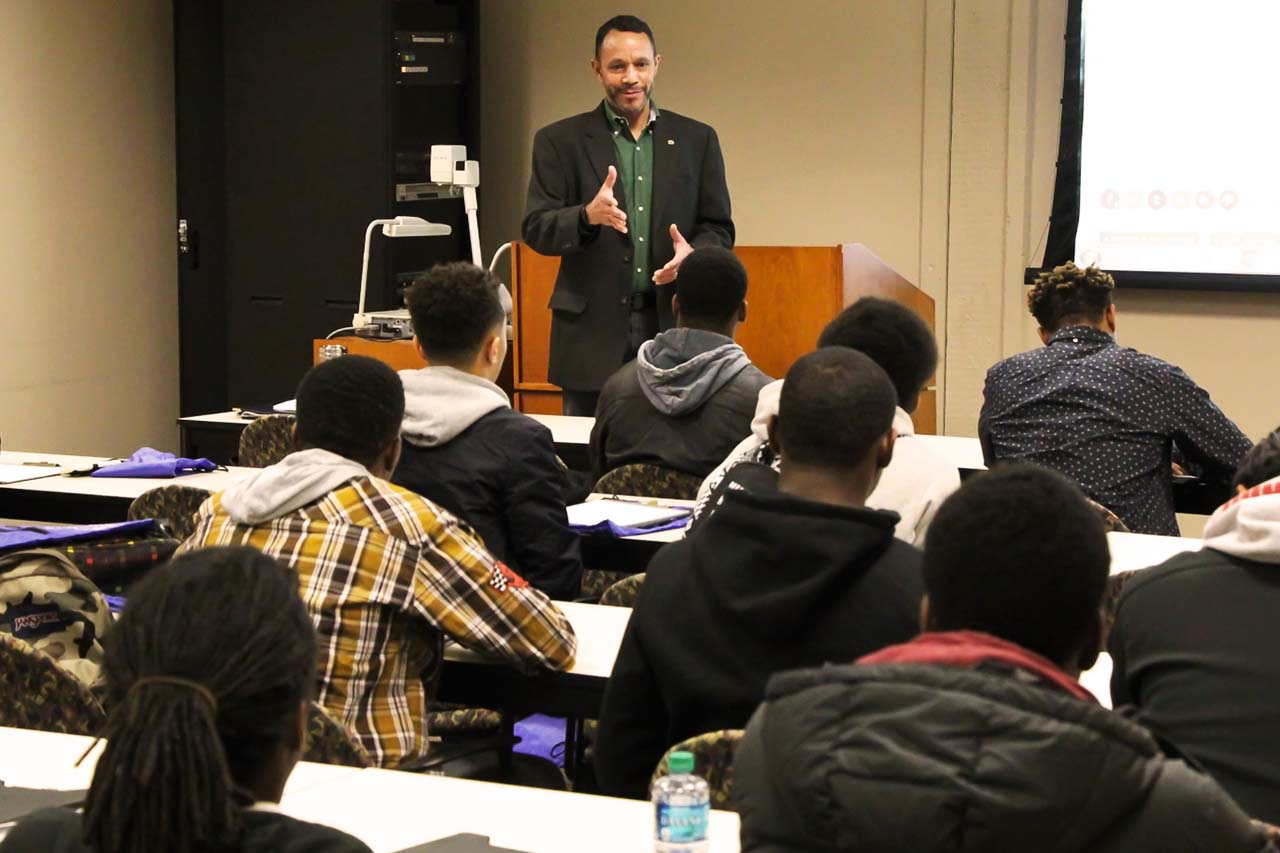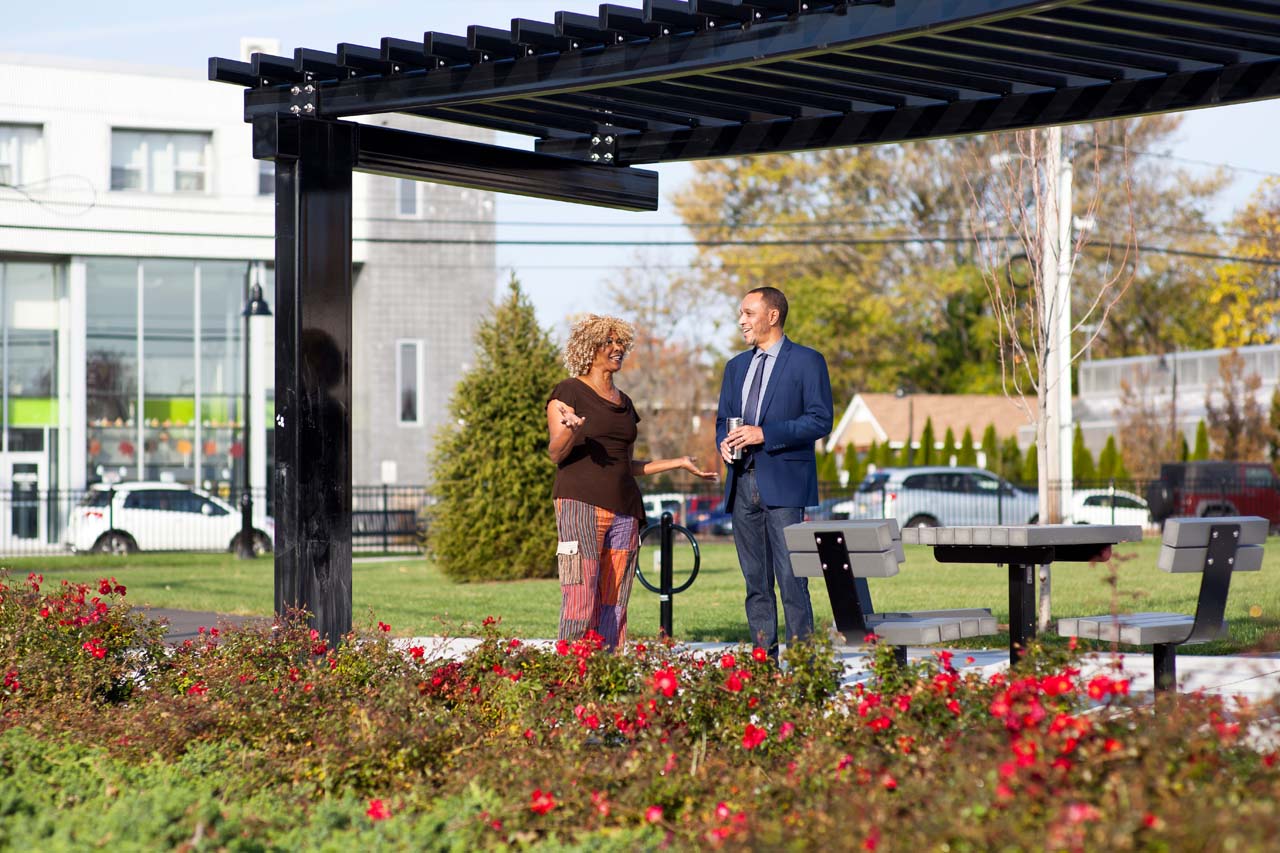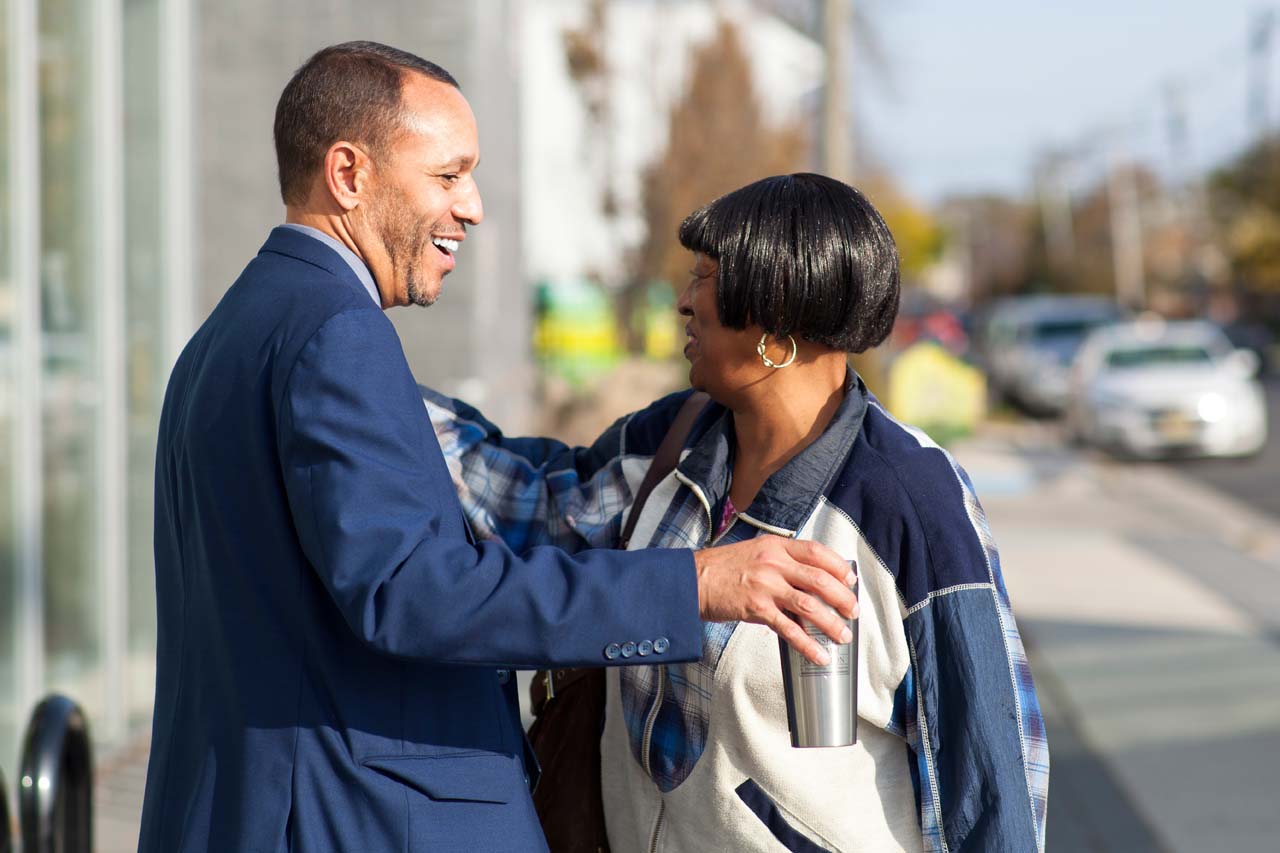Like a quiet storm, the Mayor Emeritus of Asbury Park blew change into his beloved city, then tackled the world
by Gilda Rogers • Photos By Robert Nuzzie
The Hague, Netherlands and Asbury Park, New Jersey might seem light years from each other, but the distance between these two shoreline regions was considerably shortened in September when The Hague hosted 75 mayors at the Global Parliament of Mayors (GPM).
Among them was former Asbury Park Mayor Edward Johnson, who travelled to the “International City of Peace and Justice” to take part in the three-day conference, sharing ideas and connecting with mayors from around the world in a strategic effort to create better communities. Foreign leaders there expressed interest in learning more about Asbury’s successful revitalization.

“National leaders talk about problems, while mayors have to solve problems,” said Johnson, who recalled the words of President Lyndon Johnson: “When the burdens of the presidency seem unusually heavy, I always remind myself it could be worse. I could be a mayor.”
Given today’s complex political global climate, Johnson was at pains to explain American politics. Attendees, he stated, were as perplexed as they were fascinated by the American electorate. Known for exerting grace under fire, the former civil servant was his usual cool and collected self as he lectured about the recent U. S. Presidential election and moods of the American people.
Following Johnson’s mayoral term (2009 to 2013), he founded Ed Johnson AP, a consulting firm that develops community-based projects internationally through education, dialogue, and engagement. According to its website, “We work to build bridges that connect leaders and constituencies, global communities, and people of courage who share a desire to reach beyond the past to realize the opportunities and promises of the 21st century.”

He put those goals into action last December, leading a 14-member Jersey Shore delegation in a “People-to-People Cultural Exchange” to Havana, Cuba, where they spent six days touring the island nation’s streets and beaches on the first anniversary of renewed diplomatic relations between Cuba and the U.S. The trip coincided with the 31st Annual Festival Internacional Jazz Plaza La Habana, featuring local and international jazz artists.
“The artist we brought was Karen Schwartz, a music teacher, Director of the Asbury Park High School Band, and a jazz artist in her own right,” Johnson said. “Karen performed with a group of international artists. From their first note, they captured and wowed the audience. The performance was an amazing example of not just musical talent, but the international language of music bringing people together—both artists on the stage and audience members from around the world.”
Johnson has been heralded as a sought-after visiting scholar who lends his expertise and unique perspective at policy forums here and abroad. Beneath the enterprising umbrella of Ed Johnson AP, he created “Classic Politics,” a series of events and seminars specific to the role and impact of societal politics.
He is also a columnist at The Coaster Newspaper under the banner “Live from the Coffee Shop.”
The activist for global progress, civility, and understanding was groomed by his parents never to back down from a challenge. Born in Detroit, he is the third of four children. As a youngster, his family moved to Syracuse, New York, where his father, John, joined the faculty at Syracuse University and created the Black Studies program there. With both parents actively involved in the Civil Rights Movement, civic engagement became an important part of Johnson’s DNA.
Asbury Park, known as the “Crown Jewel of the Jersey Shore” during the turn of the 20th century, had long lost that luster by the time Johnson arrived in 1998.

Expecting to see fireworks there on the Fourth of July, he asked a police officer as to the whereabouts of the pyrotechnics. The officer responded, “People like to go to a nicer community to see them.” When he protested, the cop told Johnson when the next City Council meeting was scheduled, suggesting he attend and complain.
That became his invitation to get involved politically in Asbury, where he beguiled city administrators with a cool, calm, and collected demeanor. Unbeknownst to them, he was more than prepared to help awaken the slumbering city.
A graduate of Eastern New Mexico University, Johnson received both his bachelor’s and master’s degrees in Political Science there and was re-elected President of the student governing body. At the university, he learned an important life-affirming dictum: “Look people in the eye when you talk to them and say what you mean,” Johnson said.
Operating from that perspective, he went on to serve four years as chairman of the board of Asbury Park’s Urban Enterprise Zone before being elected to its city council in 2005 and subsequently mayor in 2009.
As mayor emeritus, he is most proud of the revitalization of the Springwood Avenue corridor. Prior to his mayoral tenure, development on Asbury’s west side was null and void, unlike the beachfront’s east side with its iconic boardwalk.
So, Johnson became the catalyst behind the formation of the Springwood Avenue Advisory Board, comprised of community residents. Together, they spearheaded the redevelopment plans used to create Springwood Center, a three-story building that is architecturally pleasing to look at and symbolizes hope and progress in an area that had been a blighted eyesore for decades.
Subsequently, the city received an Achievement in Planning Award from New Jersey Planning officials. The Monmouth County Planning Board has cited the Springwood Avenue Redevelopment Plan as a model for urban community planning.
A renowned highlight of the Springwood Center is the Kula Café, a popular farm-to-table eatery owned and operated by Interfaith Neighbors, which serves as an employment training ground for residents to develop marketable skills in the hospitality industry.
In 2006, Johnson was named Director of Brookdale Community College’s Higher Education Center in Long Branch—adding to his resume of working with underserved youth. Earlier, in 1986 at the Washington Center in Washington, D.C., he was responsible for accessing college internship programs for minority students at a myriad of governmental agencies. It was while still in D.C. that Johnson would encounter its controversial mayor, the late Marion Barry, whose governmental experience and rhetoric proved insightful.
“Some of the things about being a mayor—[fixing] pot holes, [taking care of] seniors, and providing other services,” said Johnson, “Mayor Barry performed those duties well.”
Taking the concept of helping people to higher levels, Johnson’s Local to Global Initiatives builds bridges of understanding to foster cooperation, share knowledge, and fund solutions to shared problems. He previously visited the Netherlands in 2013 on a Business-Cultural Exchange Mission focused on water management and beach protection and replenishment; a result of Superstorm Sandy. He also participated in a Sister City exchange with Casalgrande, Italy, sharing musical heritage and exploring the municipal-resident relationship.

“Igniting people and passions in a positive way” is a cornerstone of Johnson’s worldwide efforts to identify and leverage what he terms “strategic resources to help build a blueprint for success.” Now in its third season, his Lights! Camera! Politics! film series recently sponsored a screening of the 1964 political movie The Best Man, starring Henry Fonda, with special guest presenter Lou Lumenick, recently retired film critic for the New York Post. Next in that series is a December 3 viewing of 1997’s black comedy Wag the Dog.
Johnson had contemplated a run for New Jersey Governor before fellow Monmouth County Democrat Phil Murphy rose to prominence and is now favored in that race.
“I know a little about raising cities from the dead,” the former official has been quoted as saying. “Everything I’ve done, people said, ‘You can’t do that,’ and we did it.”
Ed Johnson AP
P.O. Box 1415, Asbury Park
732.776.9890 / edjohnsonasburypark.com
